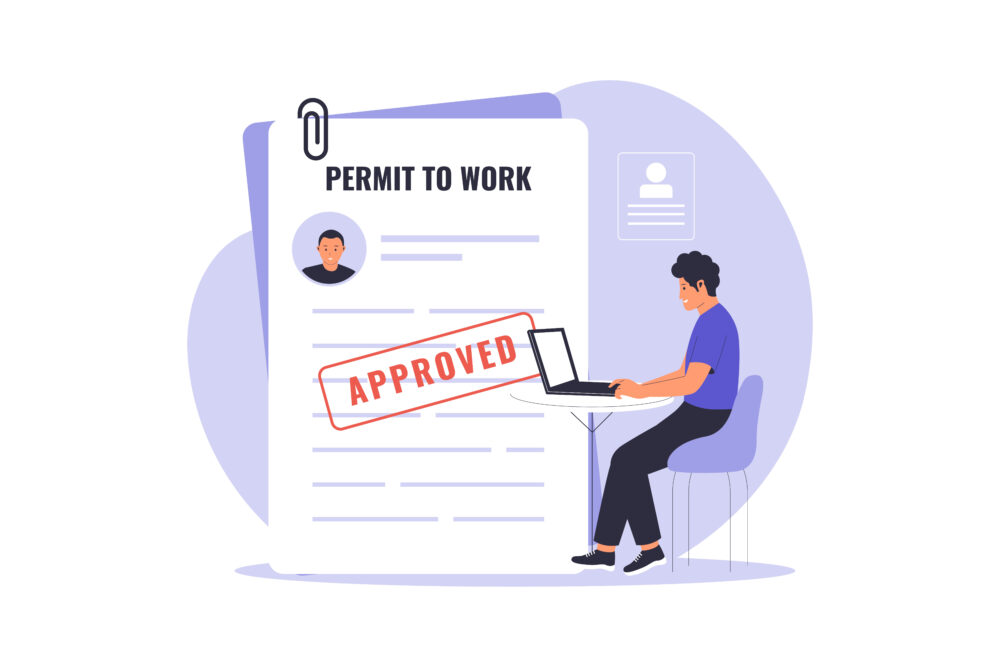Occupational safety and hygiene training is one of the important obligations of employers according to Article 7.2.b of the Law on Occupational Safety and Hygiene 2015. This regulation aims to create a safe working environment and ensure the effectiveness of the enterprise’s production and business activities.
1. Responsibility for participating in training, organizing training on occupational safety and hygiene
The provisions of Article 14 of the Law on Labor Safety and Hygiene 2015 stipulate the responsibility to participate in training and organize labor safety and hygiene training applicable to each specific subject as follows:
- Managers in charge of occupational safety and hygiene, occupational safety and hygiene workers, medical workers, safety and hygiene workers in production and business establishments must attend occupational safety and hygiene training courses and be granted certificates by occupational safety and hygiene training organizations after passing tests and examinations.
- Employers shall organize training for employees doing jobs with strict requirements on safety and occupational hygiene and issue safety cards before assigning them to this job.
- Employees working without a labor contract must be trained in occupational safety and hygiene when performing jobs with strict requirements on occupational safety and hygiene and be issued a safety card.
- Employers shall organize training themselves and be responsible for the quality of training on occupational safety and hygiene for employees not subject to the provisions of points a, b, c, apprentices, trainees, and probationary employees before recruitment or work arrangement and periodically retrain to equip them with sufficient knowledge and skills necessary to ensure occupational safety and hygiene during the working process, in accordance with the assigned job position.
Training on occupational safety and hygiene must be appropriate to the characteristics and nature of each industry, job position, and labor scale and must not cause difficulties to production and business activities. Employers will, based on the specific conditions of the production and business establishment, proactively organize separate training on occupational safety and hygiene or combine training on occupational safety and hygiene with training on fire prevention and fighting or other training content prescribed by specialized laws.
Training of subjects specified in points a, b, c must be carried out by public service units and enterprises providing occupational safety and hygiene training services . In case an enterprise conducts occupational safety and hygiene training for these subjects, it must meet the operating conditions as for occupational safety and hygiene training organizations.
List of jobs with strict requirements on occupational safety and hygiene is specified in Circular 06/2020/TT-BLDTBXH.
2. Participants of occupational safety and hygiene training course
According to the provisions of Article 17 of Decree 44/2016/ND-CP, the subjects responsible for attending occupational safety and hygiene training courses are divided into the following groups:
- Group 1: Heads of production and business units, establishments and affiliated departments, offices and branches; heads of production, business and technical departments; workshop managers or equivalent; deputy heads as prescribed in this Clause are assigned to be in charge of occupational safety and hygiene.
- Group 2: People working in occupational safety and hygiene include: Full-time and part-time occupational safety and hygiene specialists of the facility; people directly supervising occupational safety and hygiene at the workplace.
- Group 3: Workers doing jobs with strict requirements on occupational safety and hygiene are those doing jobs on the List of jobs with strict requirements on occupational safety and hygiene issued by the Ministry of Labor, War Invalids and Social Affairs.
- Group 4: Employees not belonging to groups 1, 3, 5, 6 specified in this clause, including apprentices, trainees, and probationary employees working for employers.
- Group 5: Medical workers.
- Group 6: Safety and hygiene workers as prescribed in Article 74 of the Law on occupational safety and hygiene
3. Content and duration of occupational safety and hygiene training
Due to the specific characteristics and nature of work of each group of subjects, the specific content and time of occupational safety and hygiene training are as follows:
| STT | Group | Training content | Training time
|
| 1. | Group 1 |
|
Initial training: at least 16 hours, including testing time. |
| 2. | Group 2 |
|
Total training time is at least 48 hours, including theoretical, practical and testing training time. |
| 3. | Group 3 |
|
Total training time is at least 24 hours, including testing time. |
| 4. | Group 4 |
|
Initial training: at least 16 hours, including testing time. |
| 5. | Group 5 |
|
Total training time is at least 16 hours, including testing time. |
| 6. | Group 6 |
|
Total training time is at least 4 hours in addition to the training content on occupational safety and hygiene.
|
4. Legal consequences of failure to comply with occupational safety and health training obligations
In case the employer fails to comply with the above occupational safety and hygiene training obligations, pursuant to Clause 1, Article 6 and Article 25.1 of Decree 12/2022/ND-CP, the employer may be subject to administrative sanctions as follows:
| Behavior | Form of punishment
|
|
| For individuals
|
For organizations
|
|
| Not organizing occupational safety and hygiene training for workers according to the provisions of law | Fine from 5,000,000 VND to 50,000,000 VND
(Depends on number of employees)
|
Fine from 10,000,000 VND to 100,000,000 VND
(Depends on number of employees) |
| Using workers who have not been issued safety cards as prescribed by law to do work with strict requirements on safety and labor hygiene before being assigned to do this work.
|
Fine from 5,000,000 VND to 50,000,000 VND
(Depends on number of employees) |
Fine from 10,000,000 VND to 100,000,000 VND
(Depends on number of employees) |
See more:
Disclaimers:
This article is for general information purposes only and is not intended to provide any legal advice for any particular case. The legal provisions referenced in the content are in effect at the time of publication but may have expired at the time you read the content. We therefore advise that you always consult a professional consultant before applying any content.
For issues related to the content or intellectual property rights of the article, please email cs@apolatlegal.vn.
Apolat Legal is a law firm in Vietnam with experience and capacity to provide consulting services related to Employment and contact our team of lawyers in Vietnam via email info@apolatlegal.com.





































